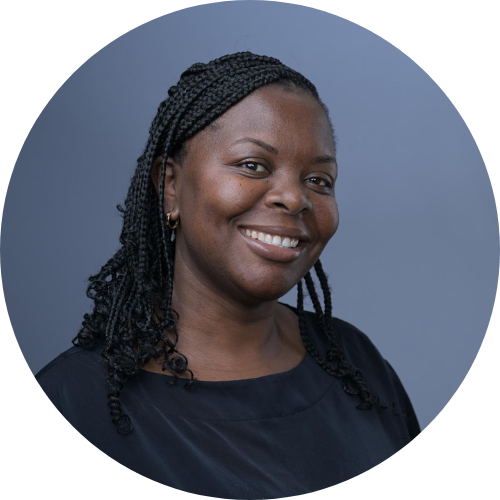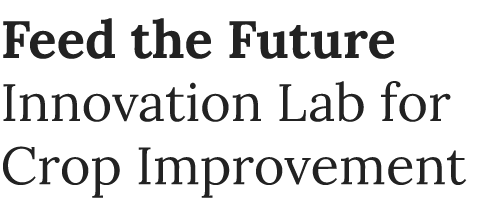The rising and ever-changing shocks and stressors especially climate change, dramatic cost of living increases, conflict, and COVID-19 have exposed the world’s agrifood systems to unprecedented challenges. Providing locally grounded resilience solutions is critical, yet even the definition of resilience remains fluid and requires continuous interrogation and careful deployment based on the context, nature, and magnitude of the shocks. The USAID definition states that; “Resilience is the ability of people, households, countries, and systems to mitigate, adapt to, and recover from shocks and stressors in a manner that reduces chronic vulnerability and facilitates inclusive growth.”
This blog presents reflections from a qualitative study with 32 Innovation Lab for Crop Improvement (ILCI) scientists in April and May 2024. The researchers in conversation are members of the ILCI Cross-Cutting Themes team, based at the University of Texas at Austin and the University of Makerere in Uganda. This study aimed to capture ILCI scientists’ perspectives on resilience, including identifying the technologies and strategies they are leveraging to strengthen inclusive resilience capacities. Their reflections aim to elucidate the theoretical and practical challenges of socially inclusive resilience in crop improvement programs, highlighting its critical role in strengthening resilience for targeted communities.

Brenda Boonabaana is co-lead for the ILCI Cross-Cutting Themes team and principal investigator for ILCI at Makerere University. She is an assistant professor at the University of Texas at Austin.

Peace Musiimenta is a member of the ILCI Cross-Cutting Themes team and principal investigator for ILCI at Makerere University.

Gloria Nakamya is a research associate for the ILCI Cross-Cutting Themes team based at Makerere University, Uganda.

Ibrahim Bahati is a senior research assistant for the ILCI Cross-Cutting Themes team based at Makerere University, Uganda.

We start by sharing about interviewing experience around the definition of resilience.
Brenda: “The research revealed a complex understanding of resilience by ILCI scientists connected with one’s disciplinary background and geographical location. While there was enthusiasm for the concept, there was also difficulty in providing a single definition. As one participant remarked, ‘I think many people understand it differently’ but ‘is it about resilience for me, the researcher, or the farmer we are talking about?’ Social scientists focused on people and systems, while biophysical scientists emphasized crop abiotic and biotic conditions. The research also highlighted the importance of considering specific geographic contexts such as the case of ‘over-adaptation’ in Haiti due to economic and political crises. Interestingly, when asked about ‘socially inclusive resilience,’ both biophysical and social scientists equated it to equity, inclusion as well as the centering of marginalized groups in crop improvement work. Gender came across as a recurring theme under socially inclusive resilience, often interlinked to poverty, age, disease exposure, and food security at various levels – households, community, and national levels.”
Peace: The most revealing aspect for me was the mutual struggle between the social and biophysical scientists in defining the technical concepts used during the interviews. As a social scientist, crop breeding terms like product profile were at first a challenge for me to fully engage with the biophysical scientists. Similarly, most biophysical scientists faced a similar challenge in defining resilience. One participant denoted, ‘I am not sure whether what I am telling you is the correct answer’, yet the examples presented (such as working with communities, and stakeholder engagements in trait preferences and crop design technologies) reflected their efforts to conduct inclusive resilience research. Interestingly, the interviews went beyond the extractivist question-and-answer approach, to learning engagements by all parties.
Gloria: “I noticed that participants’ definitions of resilience varied by discipline. Biophysical scientists emphasized crop resistance to environmental shocks like drought and disease, while social scientists focused on people and equity within agricultural systems. Regardless of these differences, both perspectives enriched the discussion on resilience. Such divergent views added value to the topic of resilience, with my first encounter being a free course: Resilience in Agriculture by ILCI. Further, the importance of interdisciplinary collaboration emerged as crucial for addressing the complexities of resilience and breaking down silos in crop improvement research. Challenges such as the underappreciation of social scientists’ contributions after the release of crop varieties to the public and initial reluctance to participate in qualitative research were also highlighted.”
Ibrahim: “Interviewing ILCI scientists brought back vivid memories of the 2023 Resilience Evidence Forum in Cape Town, South Africa. There, in a room packed with experts, we struggled to define resilience. Since then, I grasped that resilience interventions should seek to answer the ‘who’, ‘how’, ‘where’, ‘what’ and ‘to what end’ questions. My conversations with ILCI scientists opened my eyes to the role of crop breeding in building resilience, especially for marginalized communities. Undoubtedly, resilience is both a broad and complex concept, influenced by both environmental factors and social dynamics. Thus, the question ‘Resilience for whom?’ is critical in crop improvement programs that target vulnerable groups in different regions. Examples shared by scientists – from drought-resistant crops in Burkina Faso, East Africa, Mozambique, Malawi, and Senegal to targeting women processors in Haiti and involving communities in crop trait preference studies in Costa Rica – crystalized resilience to life in a more tangible way.”

Next, we share about what stood out for us in the research
Brenda: “While many scientists were initially uncomfortable conceptualizing resilience, I later realized that they were already engaged in resilience-focused work with transformative outcomes for vulnerable agrifood systems. Outstanding examples include empowering HIV-positive women in Kenya with access to improved seeds, developing nutrition-focused and drought-resistant sorghum varieties for the Karimojong communities in Uganda, and creating multiple-use technologies for people and livestock in Senegal and Malawi. These accomplishments highlight the critical role of ILCI scientists in advancing the Climate Strategy 2022-2030 positioning them as ‘front-line’ contributors. No wonder, one of the participants considers that the ILCI program is a global experiment that has innovatively enabled sustainable and locally grounded resilience solutions, through crop improvement research.”
Ibrahim: “The most striking aspect for me was the importance of community engagement in crop breeding programs. Although it might look minuscule, it reflects the African proverb that states; ‘if you want to go fast, go alone but if you want to go far, go together.’ Crop scientists can develop improved varieties, but without considering the target community and end users, these new varieties may remain unused. Engaging communities, especially marginalized groups, is crucial, as they are both evidence producers and users. Holistic projects that aim to promote inclusive resilience capacities must always seek to engage different stakeholders in their programming if they seek sustainable and resilience building — the questions of ‘who’, ‘how’, ‘where’, ‘what’ and ‘to what end’ must be asked during the design of the potential technologies.”
Gloria: “In parallel with this study, I have conducted a desk review on youth-inclusive climate change adaptation strategies through crop improvement innovations. A key finding in both studies shows generalization of young people’s role in crop breeding programs. While it was mentioned that young people prefer crops that provide quick income, mature early, and require fewer inputs, it’s important to recognize that youth are a diverse group influenced by factors like age, location, education, and access to opportunities. Crop breeding programs must prioritize youth, acknowledging their specific challenges such as limited access to land and capital, and their potential, to better meet the needs of young men and women.”
Peace: “The most striking finding was that ILCI scientists were already incorporating socially inclusive resilience into their work even without explicitly defining it. This likely stemmed from the program’s emphasis on cross-cutting themes like gender, youth, resilience, and nutrition. Collaborations between social and biophysical scientists were key to achieving this level of awareness to foster inclusivity and equity in crop improvement research. The challenge remains how this can be scaled beyond the project time scope, which brings us to the last reflection question: What are our key takeaways?”

Key takeaways
Brenda: “First, it’s undeniable that ILCI scientists are making significant progress in addressing food insecurity, chronic malnutrition, as well as coping with undesirable shocks, to create just and equitable outcomes. However, it requires substantial effort and collaboration. Secondly, I have learned that there’s no single solution for building socially inclusive resilience, but rather, a coupling of key strategies including financial investment, human resources, partnerships, interdisciplinary work, and accessible crop technologies. The challenge lies in balancing out these factors and understanding the specific needs of different communities, which are constantly changing. Finally, an intersectional approach is crucial for ensuring that all beneficiaries, especially marginalized groups, benefit from crop improvement efforts. As mentioned by one of the participants from Uganda, all in the spirit of ‘leaving no one behind’.”
Ibrahim: “This research revealed that building resilience through crop improvement programs is complex work, one that requires more nuanced contextual applicability of gender, inclusion, and intersectionality, when addressing people’s vulnerability to shocks and stressors. As scientists and researchers, we need to be cautious about the usage of buzzwords like ’empowerment’ and ‘inclusive resilience’ which might sound appealing but may not accurately reflect the realities of marginalized communities such as “ownership” of crop innovations in agrifood systems. To inform on ILCI Phase 2 programming, effective measurement of resilience-focused interventions remains central in bringing out key success stories. ILCI scientists suggested a continuation of peer-to-peer learning, North-South and South-South collaborations, and monitoring the impact of new crop varieties on household income, food security, and gender relations in measuring resilience.”
Gloria: “Our research highlights the importance of building resilience capacities for both vulnerable communities and, for researchers and their institutions. Scientists, particularly those in the Global South, portrayed that they were facing challenges due to limited funding and uncertainty about the future of resilience-focused research since most of the support was donor-funded. For sustainability purposes, crop breeding programs therefore need to intentionally involve policymakers, community leaders (including cultural and religious figures), and target communities in crop improvement research. Also, there needs to be a careful consideration of power dynamics based on gender and social categorizations to impact targeted communities, which all have an impact on achieving the goal of social equity.”
Peace: “I agree with the submissions by my colleagues on the key insights shared. We hope this research will stimulate further conversation about the role of gender and intersectionality in future programming, for the success of ILCI crop improvement programs.”

About the Researchers
Brenda Boonabaana is an assistant professor in the Department of Geography at the University of Texas at Austin and co-lead for the cross-cutting themes (CCT) for Feed the Future Innovation Lab for Crop Improvement (ILCI)
Peace Musiimenta is a senior lecturer in the School of Women and Gender Studies, Makerere University
Ibrahim Bahati is a senior research assistant for the CCT-ILCI project based at Makerere University, Uganda
Gloria Nakamya is a research associate for the CCT-ILCI project based at Makerere University, Uganda



